The downtown district serves as the heart of a community, and Hastings’ city center is beating strong thanks to investments made through the Community Development Block Grant (CDBG) program. Over the past ten years, Hastings has been awarded $1.45 million of CDBG funds for Downtown Revitalization (DTR). Use of these grants has produced 11 façade/building renovation projects, 13 new businesses, 26 new owner-occupied or rental loft apartments, and 2 parking lot renovations—with one last project to be completed.
“CDBG-DTR funds have been instrumental to the success of Hastings during my two terms as mayor,” said Hastings Mayor Corey Stutte. “As we work toward growing our community, we look forward to leveraging these important funds in the future.”
The CDBG program, celebrating its 50th anniversary in 2024, is federally funded through the U.S. Department of Housing and Urban Development. The Nebraska Department of Economic Development (DED) administers CDBG program funds in the state to help communities enhance economic well-being, local vitality, and quality of life.
Over the past decade, Hastings has leveraged CDBG funds to attract $13 million of private investment into downtown Hastings. These efforts have brought old structures back to life, rejuvenating the city’s core.
As one example, CDBG funds supported the expansion of homegrown business Pacha Soap, which opened a facility in Hastings’ downtown in December 2022. Pacha Soap is the brainchild of Hastings College alum Andrew Vrbas. While an undergraduate, he traveled to Peru to volunteer at a school. The experience opened his eyes to everyday sanitation and hygiene needs that often are taken for granted in the United States. Upon return to Hastings, he pursued a vision to make handcrafted soaps using organic, sustainable ingredients ethically sourced from developing countries. After launching Pacha Soap in 2013, Andrew and his wife (and company co-founder), Abi, loaded up their Honda with products. They traveled to farmers markets to sell their soap and tell the story of how they’re creating opportunities for environmentally responsible farmers and suppliers in the developing world. Since then, the business has grown from a small-scale soap shop into a thriving manufacturer of natural bath products.
With Pacha Soap’s growth came the need for more production capacity. CDBG assistance helped the company purchase new equipment and move into the site of a former bakery and warehouse on South Elm Avenue. As of its 2023 Annual Report, Pacha Soap had 70 employees in Hastings, with another 17 remote workers. In addition to providing quality jobs, the company is a great asset to Hastings through community betterment partnerships.
Noah’s Ark Processors, LLC (doing business as WR Reserve) is another Hastings business that is benefiting from CDBG support. In February 2024, DED awarded $1 million to the City of Hastings through the CDBG program. The city is using the funds to assist WR Reserve with expansion of its beef processing plant. The company is one of three kosher beef distributors in the United States. Since 2016, it has been the only U.S. exporter authorized to export kosher beef products to Israel. Through its expansion, WR Reserve will double its daily processing capacity, positioning the company to better serve customers in both domestic and international markets.
Hastings’ CDBG-supported success is attracting notice. In May, Pure Nebraska spotlighted its downtown development. The feature showcased the growth of small businesses and creation of upper-level residential units in the city’s core.
Hastings is one of many cities across Nebraska making great use of CDBG resources. Communities interested in applying for CDBG funding can learn more at: https://opportunity.nebraska.gov/cdbg and https://opportunity.nebraska.gov/success/. An annual resource, the Nebraska CDBG Program supports projects across most of the state. Some cities in Nebraska are the administrators of CDBG in their communities—this includes Omaha, Lincoln, Bellevue, and Grand Island.
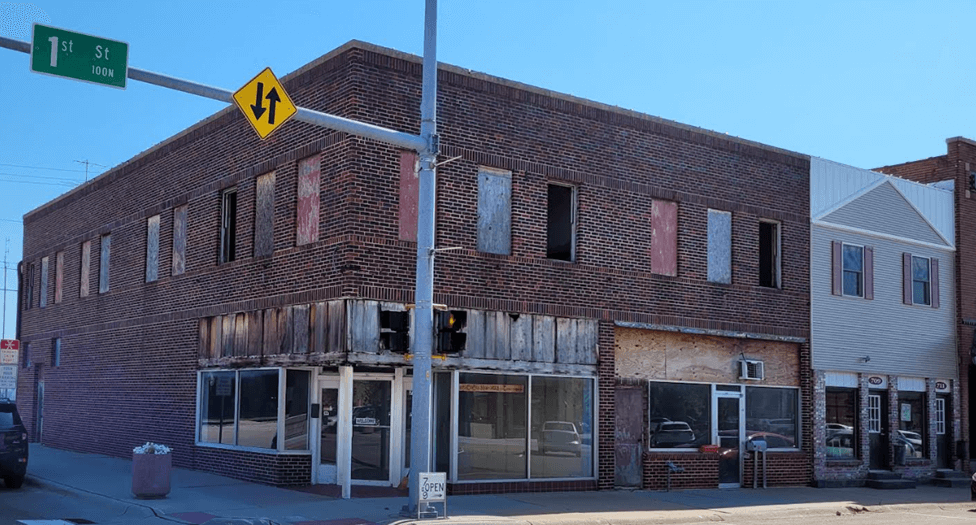
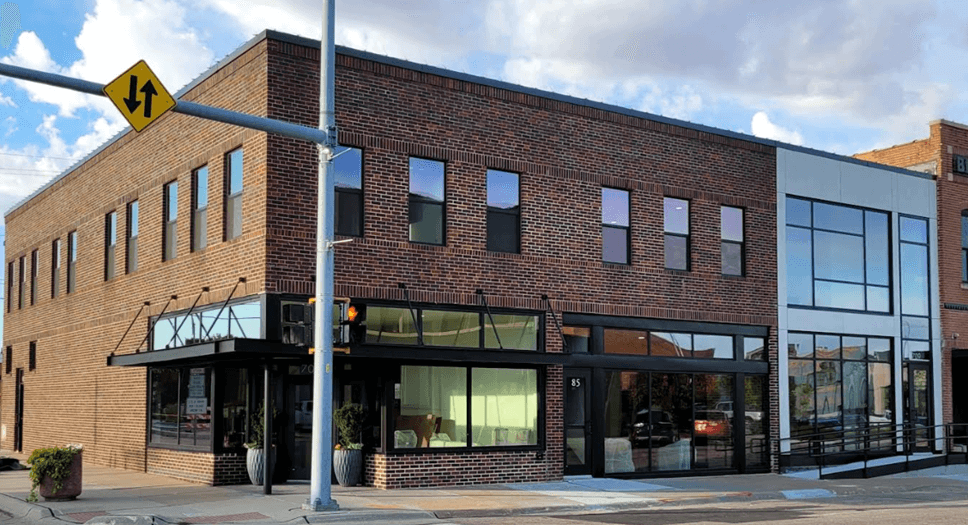
The redevelopment project at 701 W. 1st (approximately 5,500 square feet) & 709 W 1st Street (2,200 square feet) resulted in the total renovation of both floors and the exterior façade. Prior to the renovation, the buildings had been vacant for several years. The main floor retail space is occupied by Queen City Interiors and Cardinal Cabinets. The second level is occupied by two very creative businesses including The Switchyard (a unique shared-office space with kitchen, meeting room, and roof top deck) and The Attic Photo Studio (a shared photography studio). In addition to CDBG funding, the developer was able to take advantage of State Historic Tax Credits to assist with the funding of the project.
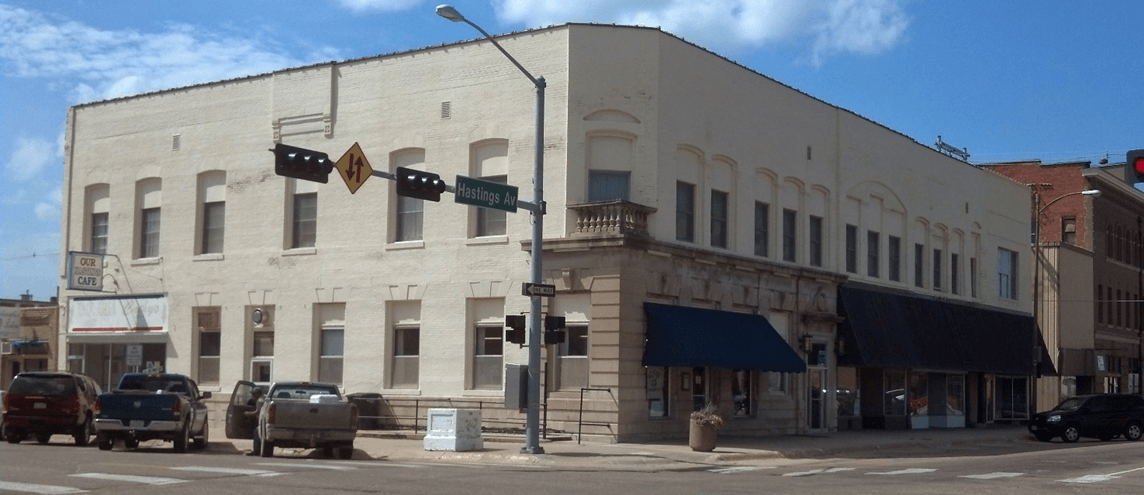
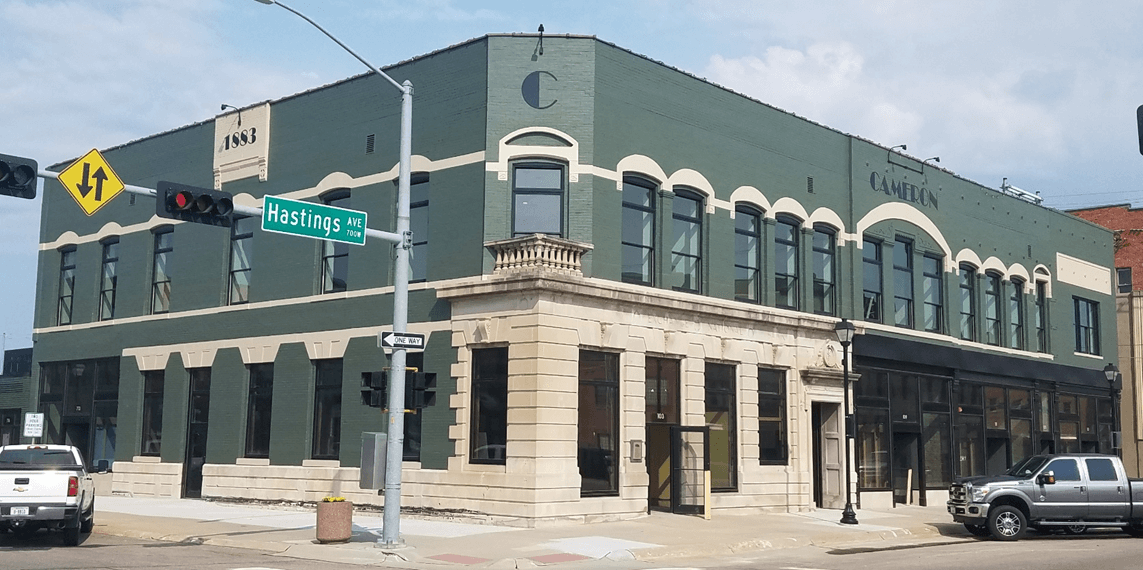
The Cameron Block (20,000 square feet), now known as Cameron Downtown, was constructed in 1883 and originally housed a mercantile business, the McKinley and Lanning Loan and Trust Co, and the Exchange Bank. Recently renovated from top to bottom, the Cameron Downtown is now home to 11 second-floor, loft-style apartments, including two studio units dedicated for short-term stays. The completed renovated main floor storefronts are occupied by Ridgeline Advisors / CPAs, a satellite office of Chief Industries, and a hair salon.
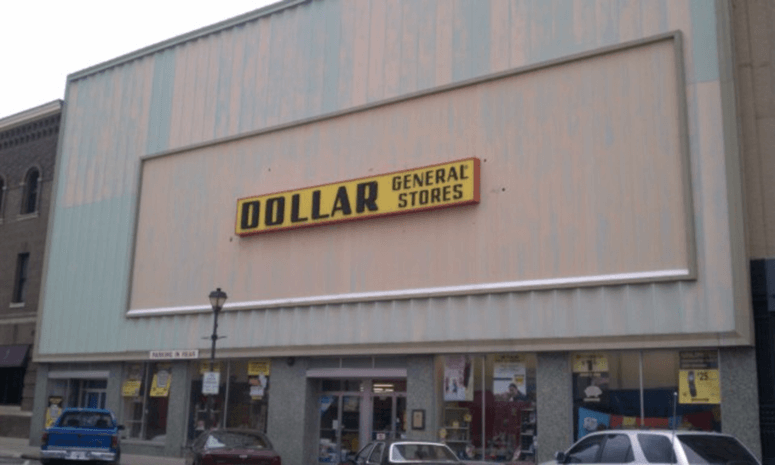
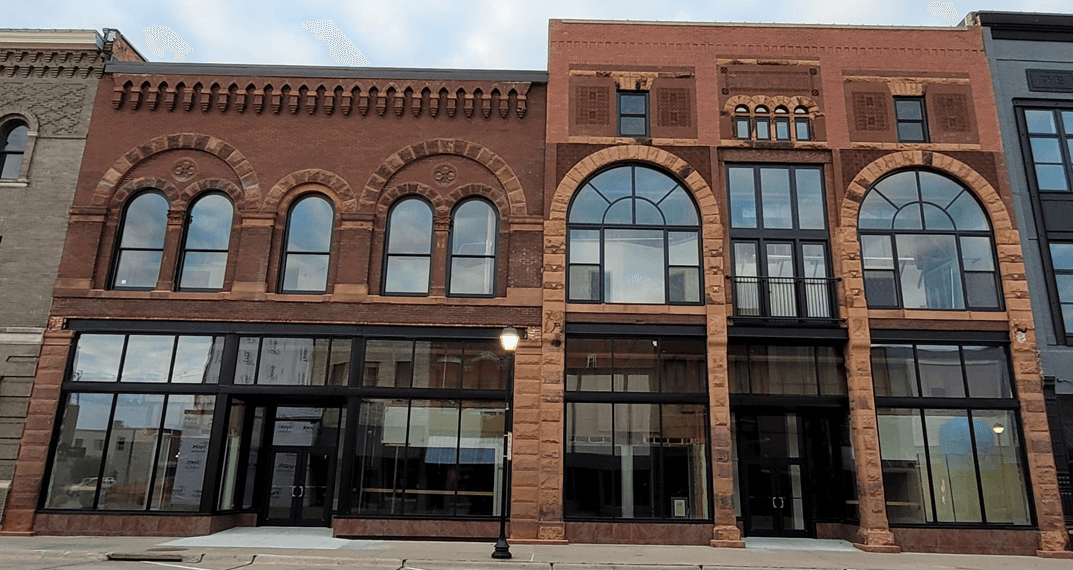
The most recent use of this 26,000 square foot building was for a Dollar General which occupied the main floor. All other levels of the building were vacant. Known as the Wolbach Building, the Wolbach & Brach Department Store commenced business in the spring of 1875. It was one of Hastings’ oldest continuous businesses when it sold to Schweser’s in 1966. It also operated under the names Wolbach Brothers, Brach’s, Inc. and Brach-Thompson. The metal façade was removed several years ago and CDBG-DTR funds were utilized to restore the façade. Jacque and Matt Cranson of Small Town Famous are renovating the interior and plan to use all levels of the building for their business.
